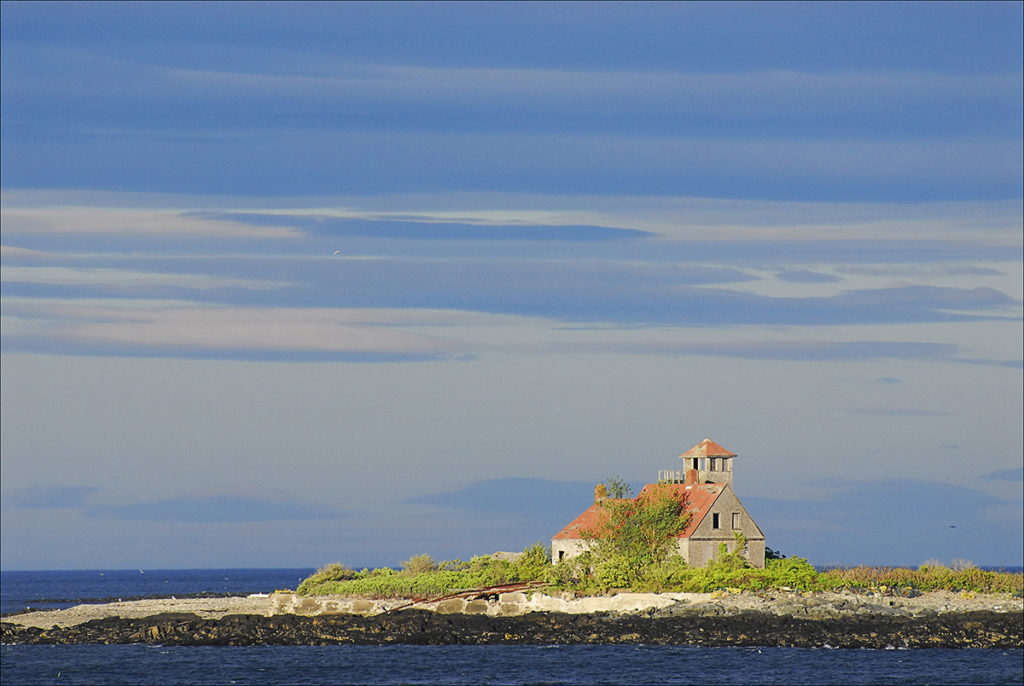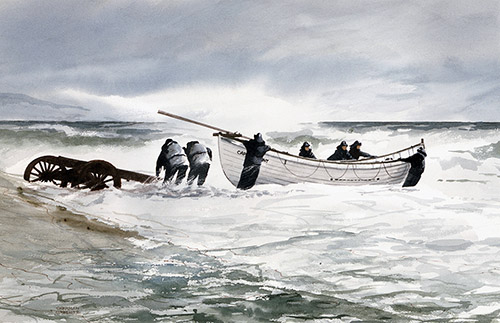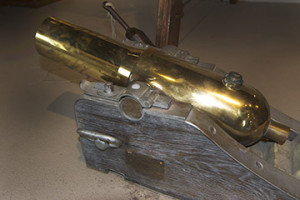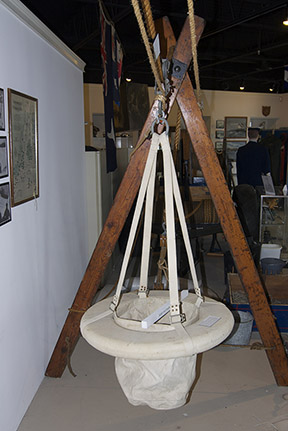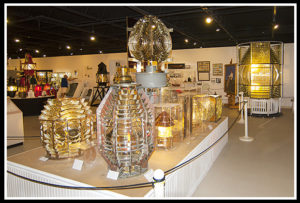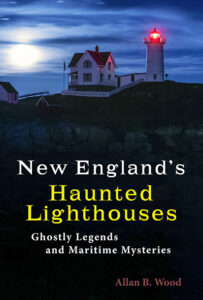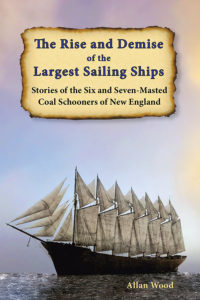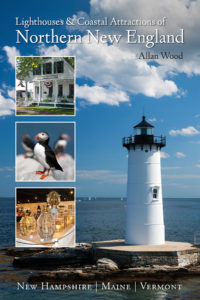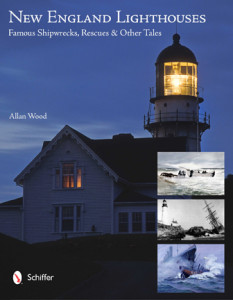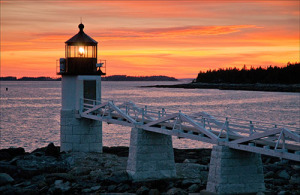Surfmen of the Life-Saving Stations
Life-Saving stations, also called surf stations, were built five to ten miles apart from a nearby lighthouse. Where the lighthouse keepers and their assistants were only allowed to attempt rescues near the proximity of the lighthouse, lifesaving stations covered a much more vast area. They could assist a more significant number of distressed survivors on a wreck a distance from the shore.
Life-saving station keepers were usually professional fishermen or were directly involved in a particular maritime occupation that had provided them with a vast knowledge of the local area and terrain. Their crew consisted of experienced local mariners and fishermen, mostly volunteers, to assist in training and rescue efforts when the New England weather was the most dangerous from Autumn through Spring.
These men were called “surfmen” as they got their name from launching their heavy lifeboats into the thunderous surf. They were also proudly called “soldiers of the surf” or “storm warriors.” These surfmen completed many successful rescues because of the nearly daily training drills they performed using the equipment and rescue procedures. They would go on daily shore patrols over five miles from either side of the station to watch for stranded wrecks.
Surfmen had two means of rescuing people on board stranded vessels or near the shores. They used an extremely heavy lifeboat pulled on a cart, either by horse or the men themselves, to a site near the wreck where it could be safely launched into the surf along the shore. This lifeboat weighed nearly half a ton and was helpful in all weather. If a ship wrecked too close to shore to use the lifeboats safely, the surfmen would use a nearly 200-pound small cannon-like gun called a lyle gun, which, when fired, would send a line out to the wreck up to 800 yards. The stranded sailors would secure the line to the wreck, and then the surfmen would securely fasten the other end to a sturdy high post, boat, or rock along the shore.
A surfman’s daily routines consisted of drills using lifesaving equipment on the beach or rocks and shooting the lyle gun at a practice pole as if it were a ship’s mast. In a perilous rescue attempt, if a lyle gun could not be used, the surfmen would have to resolve to wade waist-deep into the dangerous surf and use a heaving stick to get a line aboard the ship. One of their other pieces of equipment was a breeches buoy, which looked like a life preserver with canvas pants attached to catch the survivor so he or she could be towed ashore.
The unofficial motto of the surfmen was that “you had to go out, but you did not have to come back.” Many surfmen risked their lives to save shipwrecked victims, and some received Lifesaving Medals from the Government for performing their duties under extreme conditions or from the Humane Society itself. They were the most trained and experienced boaters to launch in all kinds of weather and perform their duties at significant risk to their lives.
Learning About Lighthouses and Life-Saving Stations
Many of these stations are in disrepair or have been removed entirely over the years. Currently, Wood Island Life-Saving Station, also known as Jerry’s Point Life-Saving Station in the top image of this page, is under restoration in Kittery, Maine. To the left, you can see the current restoration process in effect. Visit this renovated historic building, which should be available to visitors in the summer of 2024.
To see the tools used in rescue efforts, including all kinds of lighthouse items, fresnel lenses, with the largest collection of lighthouse artifacts and mementos, including exhibits that highlight stories of heroism while paying tribute to the United States Coast Guard and United States Life-Saving Services, visit the Maine Lighthouse Museum in Rockland.
Enjoy,
Allan Wood
About Master Artist: Sherman A. Groenke,
There could be no better way to visually show the heroism of these fantastic individuals without showcasing Sherman Groenke’s world-famous watercolor image above, “Launching a Surfboat.” He also served with the United States Coast Guard in World War II, started out creating recruiting posters and training charts, and served in the Pacific Theatre of Operations as a combat artist, painting and sketching on location. After the war, Groenke was employed in advertising art studios and advertising agencies in Milwaukee and Chicago until he retired in 1981. Groenke had participated in numerous group and solo shows throughout his career, including yearly participation in Watercolor Wisconsin in Illinois. He was an award-winning painter, and his works are represented in many private and corporate collections, including with the US Coast Guard. Check out his work; it’s incredible!
Books to Explore
New England’s Haunted Lighthouses:
Ghostly Legends and Maritime Mysteries
Discover the mysteries of New England’s haunted lighthouses! Uncover ghostly tales of lingering keepers, victims of misfortune or local shipwrecks, lost souls, ghost ships, and more. Many of these accounts begin with actual historical events that later lead to unexplained incidents.
Immerse yourself in the tales associated with these iconic beacons!
The Rise and Demise of the Largest Sailing Ships:
Stories of the Six and Seven-Masted Coal Schooners of New England.
In the early 1900s, New England shipbuilders constructed the world’s largest sailing ships amid social and political reforms. These giants were the ten original six-masted coal schooners and one colossal seven-masted vessel, built to carry massive quantities of coal and building supplies and measured longer than a football field! This self-published book, balanced with plenty of color and vintage images, showcases the historical accounts that followed these mighty ships.
Available also from bookstores in paperback, hardcover, and as an eBook for all devices.

Book – Lighthouses and Coastal Attractions in Southern New England: Connecticut, Rhode Island, Massachusetts
Lighthouses and Coastal Attractions of Southern New England:
Connecticut, Rhode Island, and Massachusetts.
This 300-page book provides memorable human interest stories from each of the 92 lighthouses and history. You can explore plenty of indoor and outdoor coastal attractions, including whale-watching excursions, lighthouse tours, windjammer sailing tours, parks, museums, and even lighthouses where you can stay overnight. You’ll also find plenty of stories of hauntings around lighthouses.
Lighthouses and Coastal Attractions of Northern New England:
New Hampshire, Maine, and Vermont.
This 300-page book provides memorable human interest stories from each of the 76 lighthouses and history. It also describes and provides contact info for plenty of indoor and outdoor coastal attractions and tours. These include whale watching, lighthouse tours, unique parks, museums, and lighthouses where you can stay overnight. There are also stories of haunted lighthouses in these regions.
New England Lighthouses:
Famous Shipwrecks, Rescues & Other Tales
This image-rich book also contains vintage images provided by the Coast Guard and various organizations and paintings by six famous Coast Guard artists.
You can purchase this book and the lighthouse tourism books from the publisher Schiffer Books or in many fine bookstores such as Barnes and Noble.
Copyright © Allan Wood Photography; do not reproduce without permission. All rights reserved.
Join, Learn, and Support The American Lighthouse Foundation
